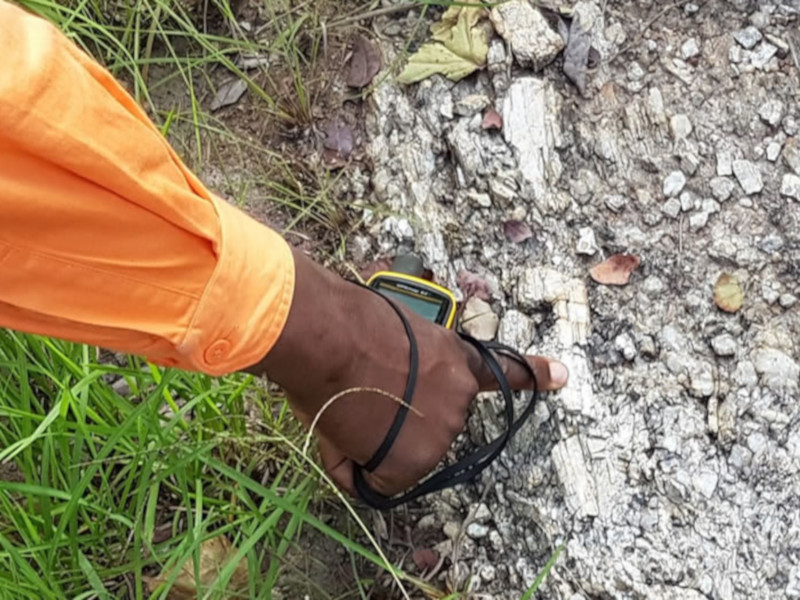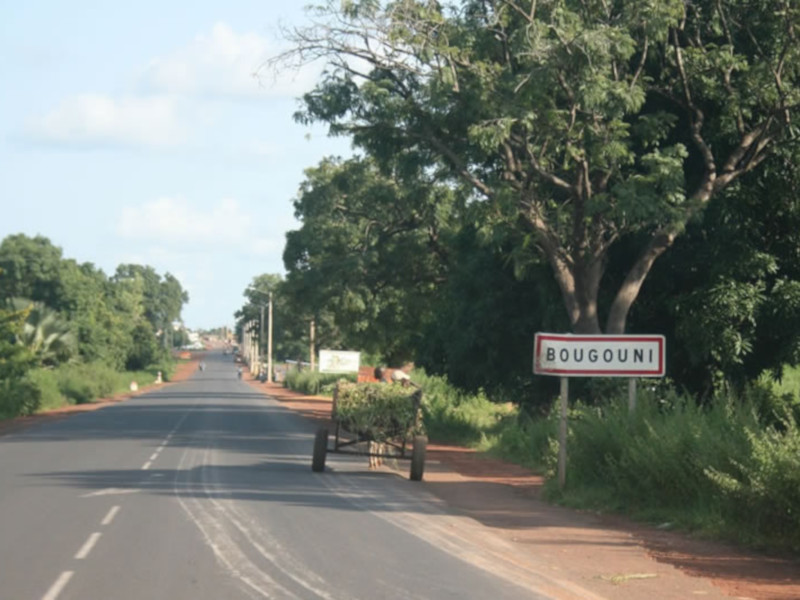The Goulamina lithium project is an open-pit lithium mine located near Bamako, the capital city of Mali.
Mali Lithium (formerly Birimian), a lithium company based in Australia, is the project owner and developer.
An updated pre-feasibility study (PFS) for the Goulamina lithium project was released in July 2018, while the environmental permit was approved in March 2019.
Construction is expected to be started following the completion of a definitive feasibility study (DFS) in 2020, while the project commissioning is expected in 2021.
Project Gallery
-

The Goulamina lithium project is expected to produce more than 5.7Mt of spodumene concentrate. Image courtesy of Birimian Limited.
-

The project is located near the city of Bougouni, Segou region of Mali. Image courtesy of Birimian Limited. Image courtesy of Birimian Limited.
-

Drilling activity underway at the Goulamina project. Image courtesy of Birimian Limited. Image courtesy of Birimian Limited.
The spodumene concentrate production from Goulamina project is expected to be more than 5.7 million tons (Mt) during the mine’s estimated operational life of 16 years. An estimated 362,000tpa of concentrate is anticipated to be produced on an average, at a grade of 6% Li2O.
Goulamina lithium project location, geology, and mineralization
The Goulamina lithium project is spread over 29,500ha of land on the Torakoro permit in southern Mali. It is located 150km from Bamako and 50km west of Bougouni.
The deposit is situated between a series of north-north-west trending vertical spodumene-rich pegmatities, which are approximately 2.5km long-and 1.4km-wide.
Spodumene (lithium) pegmatite at Goulamina is present as well-defined, broadly parallel, and continuous dykes. It is classified into three zones namely West, Main, and Sangar.
Goulamina lithium project reserves
The ore reserves in the Goulamina lithium project are estimated to be 31.2 million tons (Mt), grading 1.56% Li2O.
Indicated mineral resources of the mine are estimated to be 43.7Mt, graded at 1.48% Li2O.
Mining and processing
The Goulamina lithium project will employ conventional open-pit mining methods, to extract ore.
A two million tons per annum (Mtpa) conventional spodumene beneficiation plant will be built at the site. Ore will pass through a grizzly and the oversized lumps will be removed. The undersized ore will undergo three-stage crushing.
The crushed product will be forwarded to the reflux classifier through a fine ore conveyor, the overflow of which will be sent to mica removal screen for the separation of coarse mica.
Underflow from the reflux classifier and the undersize from the mica removal screen will then pass through the feed prep screen, with the overflow conveyed to a two-stage dense media separator (DMS).
The floats generated by the DMS will be conveyed to a ball mill feed and the resulting slurry forwarded to the classifying ball mill cyclones.
The product will then be conveyed to a flotation circuit, wherein it will undergo two stages of rougher, three stages of cleaning, and one stage cleaner scavenger.
The final concentrates from the DMS and flotation circuits will be blended before being trucked to the Port of Abidjan in Ivory Coast.
Goulamina lithium project infrastructure
The lithium project is accessible from the 25km-long unpaved Kemene-Mafele-Goulamina road.
Raw water required by the project will be collected from the Selingue Dam, located to the west of the project, through a 25km pipeline.
Selingue Dam, located to the west of the project, will be the main source of raw water for the project. A 25km-long pipeline will be used for transporting water to the project.
A 300-person accommodation camp, approximately 4km north-east of the processing plant, is proposed for providing accommodation to the workers.
In January 2020, Mali Lithium also signed a memorandum of understanding (MoU) with Kodal Minerals, which is developing the Bougouni lithium project in the same region, to explore the possibility of establishing certain common infrastructure facilities for both the projects
Contractors involved
Mali Lithium contracted DRA Global to provide engineering services for the optimization of process flowsheet for the Goulamina lithium plant, in May 2019.
The environmental and social impact assessment (ESIA) report for the project was prepared by Digby Wells.
Northshore Capital Advisors is responsible for the financial modeling as well as the operating cost estimates.
The PFS of the lithium project was prepared by Ausenco Services, while Cube Consulting was engaged in calculating the mineral resources and ore reserves.
Roskil Consulting UK is responsible for the lithium supply demand and cost estimates.
Mali Lithium contracted Land & Marine Geological Services for conducting engineering and design of the tailings storage facility, while the metallurgical test works contract was awarded to ALS Metallurgy and Valdrew Nominees.
